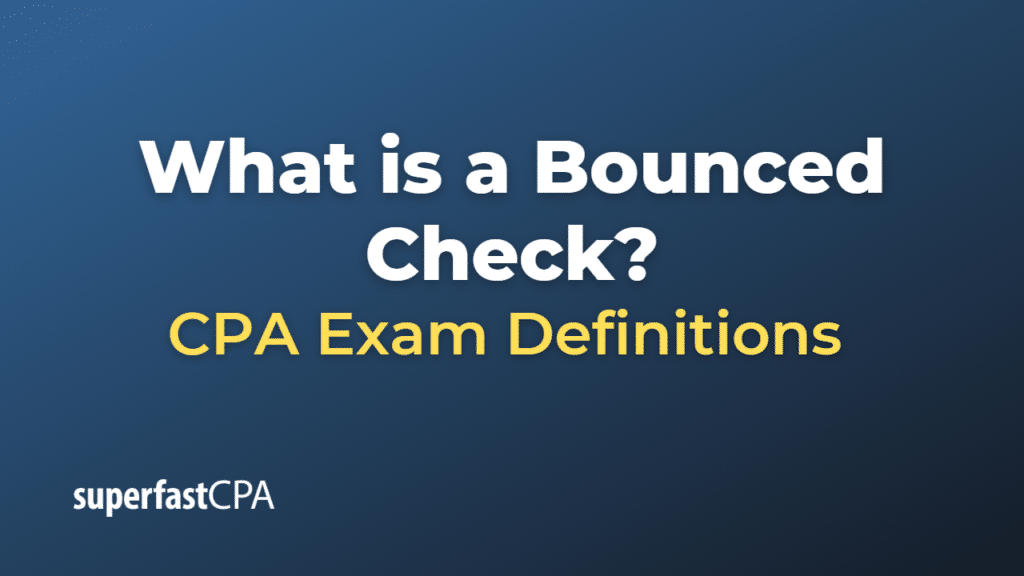Bounced Check
A bounced check, also known as a returned check, dishonored check, or insufficient funds (NSF) check, is a check that a bank or other financial institution refuses to honor or pay due to insufficient funds in the account of the person or entity that issued the check. When a check bounces, it means the payer does not have enough money in their account to cover the amount written on the check, and as a result, the payee does not receive the funds they were expecting.
Bounced checks can lead to various negative consequences for both the payer and the payee:
- Fees: Both the payer’s and payee’s banks may charge fees for handling a bounced check. The payer may be charged an NSF fee by their bank, and the payee may be charged a returned check fee by their bank.
- Damage to credit: Bouncing checks can negatively impact a person’s credit score, making it more difficult for them to borrow money or obtain credit in the future.
- Legal consequences: In some jurisdictions, knowingly writing a bad check can be considered a criminal offense, with potential penalties including fines and even imprisonment.
- Loss of trust: Bounced checks can harm relationships between the payer and payee, as the payee may view the payer as unreliable or untrustworthy.
To avoid bouncing checks, individuals and businesses should closely monitor their account balances and ensure they have sufficient funds to cover any checks they write. In some cases, banks may offer overdraft protection services, which can help customers avoid bounced checks and the associated fees by temporarily covering the shortfall in their account.
Example of a Bounced Check
Let’s consider an example involving a fictional individual, John, who writes a check to his friend, Mary, as repayment for a loan.
- John writes a check for $500 to Mary, believing he has enough money in his bank account to cover the amount.
- Mary receives the check and deposits it into her bank account.
- The next day, John’s bank processes the check and discovers that John’s account has only $450, not enough to cover the $500 check he wrote to Mary.
- As a result, John’s bank refuses to honor the check due to insufficient funds and returns it to Mary’s bank. The check has now “bounced.”
- Mary’s bank informs her that the check she deposited has bounced and deducts the $500 from her account, possibly charging her a returned check fee.
- John’s bank also charges him an insufficient funds (NSF) fee for the bounced check.
- Mary is left without the $500 she was expecting from John, and their trust in each other may be damaged due to the bounced check.
To avoid this situation, John should have closely monitored his account balance before writing the check and ensured he had sufficient funds to cover the amount. If John had realized his mistake before Mary deposited the check, he could have asked her to hold off on depositing the check and deposited additional funds into his account to cover the amount, avoiding the bounced check and its associated fees and consequences.













